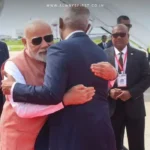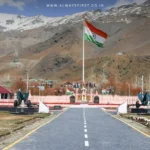
India-Pakistan relations have once again spilled onto the cricket field, with the Board of Control for Cricket in India (BCCI) seriously considering pulling out of the upcoming Asia Cup tournaments, including both the men’s and women’s formats. The decision is being seen as a response to the growing diplomatic rift between the two nations following the Pahalgam terror attack in April 2025, which India has directly linked to Pakistan-based terror groups. In the aftermath, India launched Operation Sindoor, a cross-border precision strike campaign targeting terror infrastructure in Pakistan-occupied Kashmir. As a form of diplomatic isolation, India is now using cricket, a major soft power in South Asia, to send a strong geopolitical message.
Operation Sindoor and the Politics of Cricket
The Pahalgam terror attack that claimed the lives of 26 people, many of them tourists, prompted a fierce response from India, both militarily and diplomatically. As part of its wider counter-terrorism measures, India launched Operation Sindoor targeting known terror camps across the Line of Control. This was accompanied by a coordinated diplomatic campaign where Indian envoys briefed global leaders and international organizations, including the Financial Action Task Force (FATF), to emphasize Pakistan’s role in supporting cross-border terrorism.
In this charged backdrop, the BCCI’s decision to consider withdrawing from the Asia Cup is being viewed as a form of soft retaliation. The move appears aimed at delegitimizing Pakistan on the international stage, including in the realm of cricket diplomacy. This action also aligns with the Indian government’s current approach, which considers any future terrorist attacks to be acts of war, warranting both hard and soft responses.
Targeting the Asian Cricket Council (ACC)
At the centre of the controversy lies the Asian Cricket Council (ACC), the body responsible for organizing the Asia Cup. The ACC is currently chaired by Pakistan’s Interior Minister Mohsin Naqvi, who also heads the Pakistan Cricket Board (PCB). The BCCI’s discomfort with Pakistan’s increased control over ACC operations has become more pronounced in recent weeks. According to reports, the BCCI may completely withdraw from all ACC events, including the 2025 Men’s Asia Cup and the Women’s Emerging Teams Asia Cup, citing the need to distance itself from any sporting cooperation with a country it accuses of harbouring terrorists.
Sources close to the Indian cricket board indicate that this isn’t merely a symbolic gesture. India’s decision could significantly disrupt the structure of the ACC itself. Former India captain Sunil Gavaskar hinted that the Asia Cup may even be conducted as a multi-nation tournament without Pakistan if India pulls out. Such a development would weaken the ACC’s role in regional cricket coordination, potentially leading to its irrelevance or restructuring.
Pakistan’s Reaction and Copybook Diplomacy
Pakistan, meanwhile, has not remained silent. Reacting to India’s diplomatic and cricketing offensive, Islamabad announced that Foreign Minister Bilawal Bhutto Zardari would lead a “peace delegation” to multiple countries, in what appears to be a reactive diplomatic effort to counter India’s global narrative. Critics, however, have dismissed the move as “copy-paste diplomacy”, mimicking India’s structured outreach following Operation Sindoor. The Pakistani cricket establishment, under Naqvi’s leadership, has also expressed concerns that the BCCI’s refusal to participate in ACC events could lead to a wider divide in international cricket.
The PCB issued a veiled warning, suggesting that such moves risk “splitting” the cricket world, especially in the Asia-Pacific region. It emphasized that sports should remain above politics, a stance echoed by the International Cricket Council (ICC) in past disputes between the two countries. However, the PCB’s own politicization of cricket, exemplified by placing a government minister in charge of both the interior ministry and the PCB, further complicates its argument.
Risks for Future Multi-Nation Tournaments
India’s absence from the Asia Cup could set a precedent for future cricket tournaments. With both India and Pakistan set to play in the ICC Champions Trophy and potentially the 2026 T20 World Cup, a breakdown in bilateral cricketing cooperation could spill over into global fixtures. In recent history, India has already declined bilateral cricket series with Pakistan, citing security and political concerns. The potential Asia Cup boycott raises fears that India may refuse to play Pakistan even in ICC tournaments, unless hosted in neutral venues or under exceptional security guarantees.
Cricket fans and analysts alike are worried that the game could suffer as a result. Pakistan’s ability to host international matches has only recently resumed after years of isolation, and any further withdrawal by major teams like India could roll back the gains made in reviving cricket in the region.
A New Form of Diplomacy: Cricket as a Strategic Tool
India’s approach signals a new form of diplomacy, using cricket, the subcontinent’s most beloved sport, as a tool of strategic communication. By withdrawing from cricketing engagements with Pakistan, India is not only signalling displeasure but also leveraging its dominant influence in world cricket to isolate Islamabad on another front.
This strategic isolation, however, is a double-edged sword. While it bolsters India’s political message and may even rally domestic support, it also risks undermining regional cricketing structures and disappointing millions of fans across the globe who cherish the intense India-Pakistan rivalry on the field.
Conclusion: The Road Ahead
The BCCI’s potential boycott of the Asia Cup is more than a cricketing decision, it is a diplomatic manoeuvre crafted in response to rising border tensions and repeated acts of cross-border terrorism. As India continues its campaign to hold Pakistan accountable on global platforms like FATF, and Pakistan scrambles to defend its international standing, cricket has become yet another stage for geopolitical rivalry.
The coming weeks will be crucial. If the BCCI formalizes its decision, it may not only reshape the future of the Asia Cup but also set the tone for how international sports bodies respond to political crises. With passions running high and both countries entrenched in their positions, the future of Indo-Pak cricket, once the crown jewel of global sports rivalries, and hangs in the balance.









































Leave a Reply